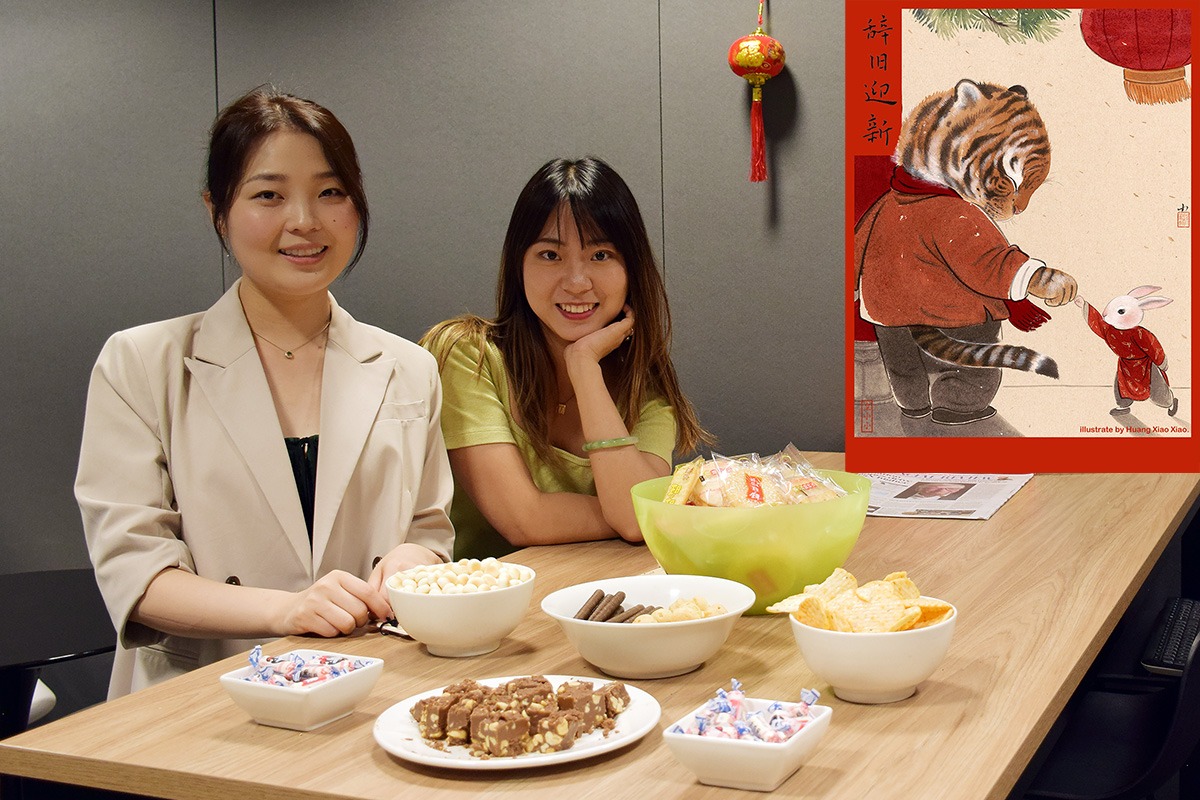We asked Karen Yang and Maggie Zhang from our Payroll team what Chinese New Year, which falls on 22 January in 2023, means to them…
Karen:
The celebration of Spring Festival (or Chūnjié in pinyin) has more than 4000 years history. Based on the Chinese lunisolar calendar, Spring Festival/Chinese New Year period lasts 15 days. In China we have a national holiday to worship gods and ancestors, pray, reunite with relatives and friends, celebrate and entertain.
Just like western cultures celebrate Christmas, Chinese people start preparing at least two weeks before New Year. We buy decorations, food, new clothes etc. Traditionally, all family members also return home. When we were students, and pre-pandemic, we could go back home every year. Since we have been working here with the lockdowns and travel restrictions in both Australia and China, we haven’t been home in more than three years!
Maggie:
The most important thing for us at Chinese New Year is to get together with our families. An old saying is, ‘Always get back home for New Year, no matter whether you’re rich or poor’. From the first day of New Year, people start to visit relatives and friends until the eighth day. It’s a special time for family reunion and we stay up all night on New Year’s Eve. In Australia it’s been really hard to do so, but thanks to technology we can make video calls and meet everyone virtually, which makes me feel like I’m not being excluded.
Karen:
After a year of working hard and being apart from family, reunion dinner means a lot to Chinese people. We celebrate the end of the year and wish everyone the best for the coming new year. Although there are different traditions across the country, the go-to dish for me must be dumplings! We put coins into some dumplings, which brings luck to those people who find them.
Maggie:
Since China is vast in territory, people have different traditions from east to west, north to south and those passed on from generation to generation. Things never really change in my hometown, which has led me to get to know other Chinese traditions in Australia. For example, that people from Shanghai and surrounds eat rice cakes and sweet rice balls instead of dumplings at New Year. Personally, I never watched a dragon and lion dance in my hometown because it is too cold at that time of year for people to have activities outside. Here there is a huge parade in Chinatown and people love it. It’s amazing for me to see so many Chinese cultures blend together and experience all of it while living overseas.
Chinese New Year is a combination of Chinese traditions, art and food. It is a valuable opportunity for me to share my culture with colleagues. People here are interested in their Chinese Zodiac the most. This year, the Year of the Rabbit, will affect everyone’s luck in different ways – it’s so different for every person! For people born in the Year of the Rabbit, they need to be a bit more careful than others and it is recommended they wear red (from top to bottom) during the festival for good luck.
Karen:
We put our Fú (meaning fortune or good luck) character written in calligraphy on the door, window or wall in our houses for good luck. It’s hung upside down because ‘arrive’ and ‘upside down’ have the same pronunciation in Mandarin – which means Fú will stay in the house and it won’t leave.
Karen and Maggie:
We’re not used to working during the festival at home. In the past few years we didn’t get a chance to celebrate in the office. This year we could and it made us feel our culture was accepted, and we love to share our culture with the Group at Slade. We have enjoyed seeing our colleagues celebrating Chinese culture – especially Chinese zodiacs – everyone wants to know what they mean.
Sharing our Spring Festival makes us feel supported, respected, and part of a diverse and inclusive work culture.

